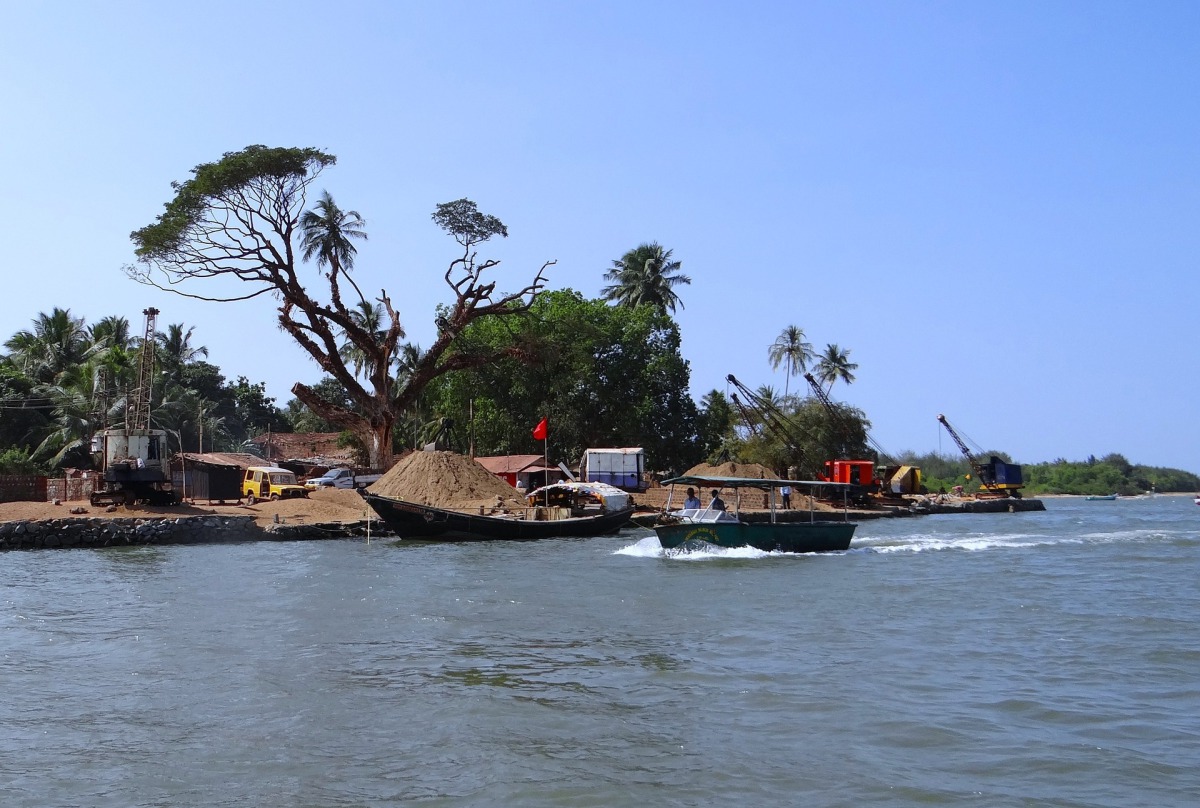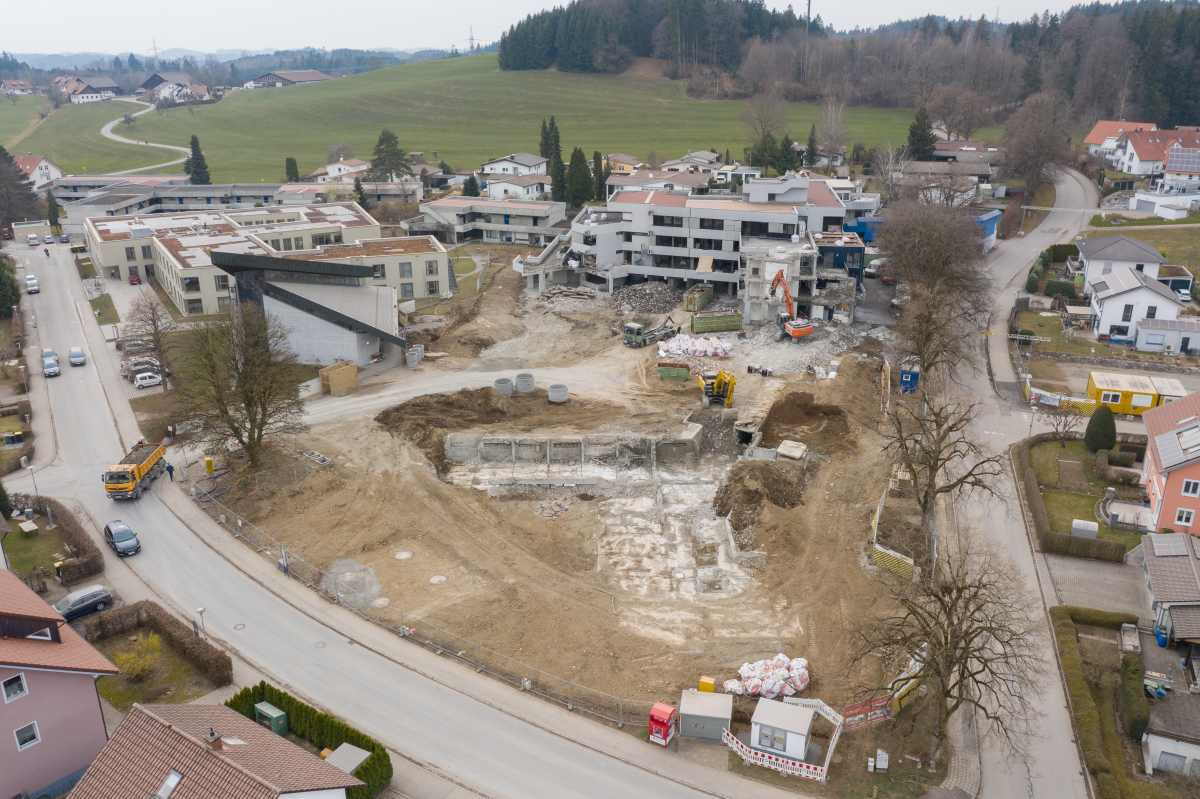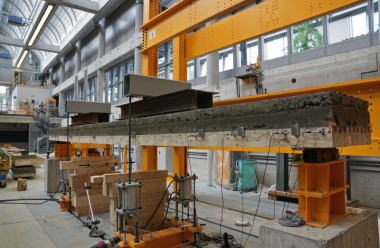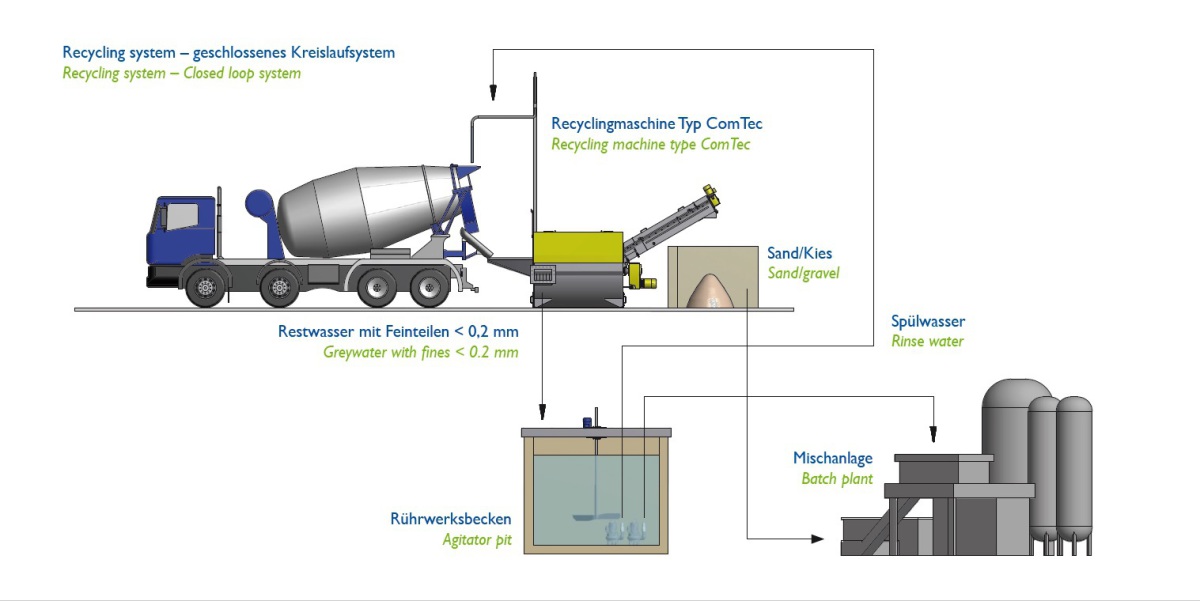Sand and gravel are systemically relevant
24.06.2025
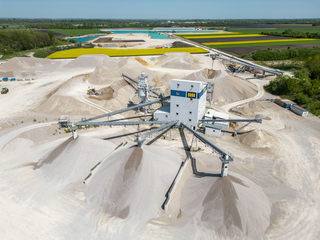 Figure: Porr
Sand and gravel are indispensable raw materials for numerous construction projects and industrial applications. They form the basis for concrete and asphalt and are therefore essential for the construction of buildings, roads and infrastructure. Sand and gravel are systemically relevant and play a crucial role in economic development and ensuring security of supply, and the importance of sand and gravel is reflected in their ubiquitous use. Without these raw materials, the modern construction industry would be unthinkable. They are not only necessary for the construction of residential and commercial buildings, but also for the construction of bridges, tunnels and other infrastructure facilities.
Figure: Porr
Sand and gravel are indispensable raw materials for numerous construction projects and industrial applications. They form the basis for concrete and asphalt and are therefore essential for the construction of buildings, roads and infrastructure. Sand and gravel are systemically relevant and play a crucial role in economic development and ensuring security of supply, and the importance of sand and gravel is reflected in their ubiquitous use. Without these raw materials, the modern construction industry would be unthinkable. They are not only necessary for the construction of residential and commercial buildings, but also for the construction of bridges, tunnels and other infrastructure facilities.
Local extraction and sustainability
A decisive advantage of local extraction of sand and gravel is the high level of supply security and independence from global supply chains. Short delivery routes and proximity to the extraction areas ensure a continuous and reliable supply of the required raw materials. Regional extraction means that transport routes can be significantly shortened, which not only reduces costs but also improves the carbon footprint. Short transport routes mean fewer emissions and therefore make an active contribution to climate protection, while local extraction also enables better control and compliance with environmental standards. Regional companies can adapt the extraction processes to the specific ecological requirements of the surrounding area and thus minimise the negative impact on nature. The use of state-of-the-art and environmentally friendly extraction technologies plays a key role in this. Companies such as Porr Rohstoffe GmbH & Co. KG invest in innovative processes that enable the resource-saving and efficient extraction of sand and gravel. This includes the use of machines that reduce energy consumption and increase productivity at the same time. The company is part of Porr's ‘Mineral Resources’ division in Germany and offers a wide range of products and services related to the extraction and processing of sand and gravel and ensures fast processing via a modern, digital logistics concept.ultimately, the local extraction of sand and gravel helps to promote the circular economy. Companies that specialise in regional extraction often also have recycling plants in which building materials are reused and the raw material cycle is closed. This reduces the need for new raw materials and protects natural resources.
Ecological impact and rehabilitation
A crucial aspect of sand and gravel quarrying is analysing the ecological impact and developing strategies for renaturation and restoration of quarrying areas after use has ceased. Porr has set itself the goal of implementing environmentally conscious practices in the extraction and processing of sand and gravel. The company uses state-of-the-art technologies to minimise the negative impact on the environment. After the end of extraction, the supplier of mineral raw materials is committed to restoring the extraction areas. This includes reforestation, the creation of biotopes and the renaturalisation of water areas in order to promote biodiversity and restore natural habitats.
Through these sustainable practices, Porr not only contributes to the security of supply in the greater Munich area, but also to the protection of the environment and the preservation of biodiversity. To summarise, sand and gravel are indispensable raw materials whose importance for the construction industry cannot be overestimated. Sand and gravel are therefore systemically relevant.
CONTACT
Porr GmbH & Co. KGaA
Walter-Gropius-Str. 23
80807 Munich/Germany
+49 89 71001-0

